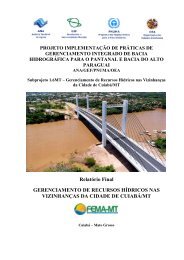Rt€@lll
Rt€@lll
Rt€@lll
Create successful ePaper yourself
Turn your PDF publications into a flip-book with our unique Google optimized e-Paper software.
-82<br />
(ii) The requirernent for larga cxpenoive verrala An avarage (100 tonne) pole-nd-line a<br />
longline veeael, used in the disten!-water firherieg of the central and wartern prcific,<br />
now has a reptacenrent value of ryproximately USf2rfl)0rfl)0; en everage Unitcd Statce<br />
tuna purse-seiner of I,100 tons costs approximalely USfllr00rfi)0 to build and elmoat<br />
$l'm0'm0 per ennum to run. Few developing ielani nationi can afford anch axpencee.<br />
Small states generally do not heve suiteble slipping srd docking facilitiee for larger<br />
fishing vessels, nor do they carry extensive stocks of sparJ parta and enciltiry<br />
equirncnt.<br />
(iii) Cct and availebility of fuel In 1976, it cost ryproximately Ail40,0O0 per ennum for<br />
fuel for a 150 tonne pole-and-line vessel, Al100rm0 fur a 276 tonne'longliner and<br />
A$240'm0 for a I,100 ton purse-seiner. The fuei costs for any me of these vessela<br />
exceed.the entire national fuel bill for 1977 for each of two of the Island etateg of the<br />
South Pacific (Tuvalu and Niue) and represent a substantial fraction of the fuel<br />
consunption of several others. Fuel pricee have increased dramatieally eince 1976. Fuel<br />
is not only becoming more expensive, but is also difficult to obtain in exectly the<br />
quantities required to zupply a srnall number of veesels, which are rcfuelled m an<br />
inegular basis, making it difficult for any non-oil producing country to plan the<br />
development of fisheries which will necessitate cJbstantiel increases in fuel<br />
consunption.<br />
Fuel is also far more expensive in rernote area8. This makes it dieadvantageous for<br />
foreign flag vessels to b,r.rnker there and hence difficult for smell statea to encourege<br />
these vessels to call and unload their catch. It also ffEans that Island states have an<br />
extra economic disadvantage lo contend with when catching fish to sell on en<br />
internationally competitive market.<br />
(iv) Problemo of smellners and econqnieg of scal,a. There are many probbma of srnallness<br />
and economies of scale relevant to fisheries developnnnt in the Pacific Islandg. These<br />
have been covered in previous publicationer e.g, Kearney 1900.<br />
The inability of at least some small Island states to cope with these and other problems<br />
might zuggest pessimism for their future in tuna fisheriea. This is gertainly not intended. The<br />
rnagnitude of the problems does suggest that some Island states will find it imposaibb to<br />
develop wholly owned, large scale tuna enterprises, h.rt it des not et all detrect from the<br />
countriesl potential to develop small scale tuna fisheries, or joint venture qerations in whieh<br />
they have limited equity, or to generate considerable revenue from the activitiea of foreign<br />
vessels in their fishing zones.<br />
As the tuna resources are generally underexploited, there is obviouely potential for<br />
increasing eatches by srbsistence or artisanal fishermen. This potential is being further<br />
increased throughout the region by adapting nndern technology, zuch es fish aggregation<br />
devices, to small scale fisheries. The success of joint venture or co-qeralive tun-a fishing<br />
ventutes' such as those in Solomon Islands and Fiji, endorses the potential such arrangementi<br />
have for further developnrents. Finally, the magnitude of the velue of catcireg by<br />
distant-water fishing fleets in the 200-mile zones of coastal stetes, in some cases having<br />
fresh fish values greater than the gross national product of the country from whose watere<br />
they are taken (Kearney l98la), coupled with the increased rights of coastal states in the<br />
new regime of the Law of the Sea, cleanly demonstrabe t}te potential for Island states to<br />
generate significant tevenue from foreign fishing interests, particularly if realistic access<br />
fees can be negotiated.


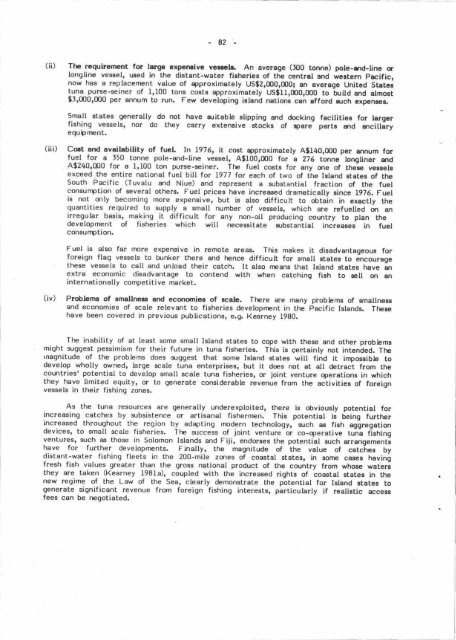
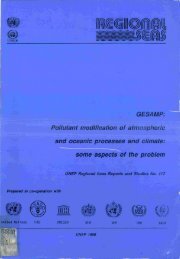

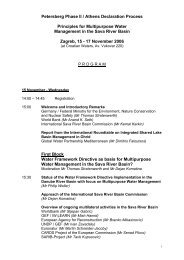
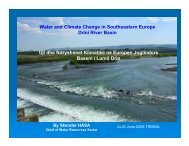
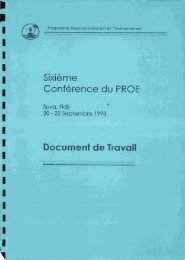


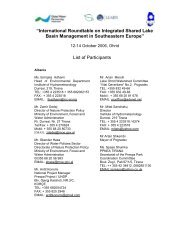

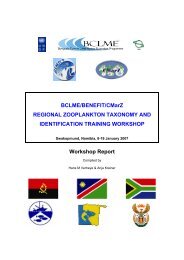
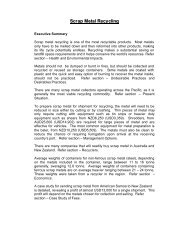
![R]€@lll](https://img.yumpu.com/7594335/1/175x260/reurlll.jpg?quality=85)
